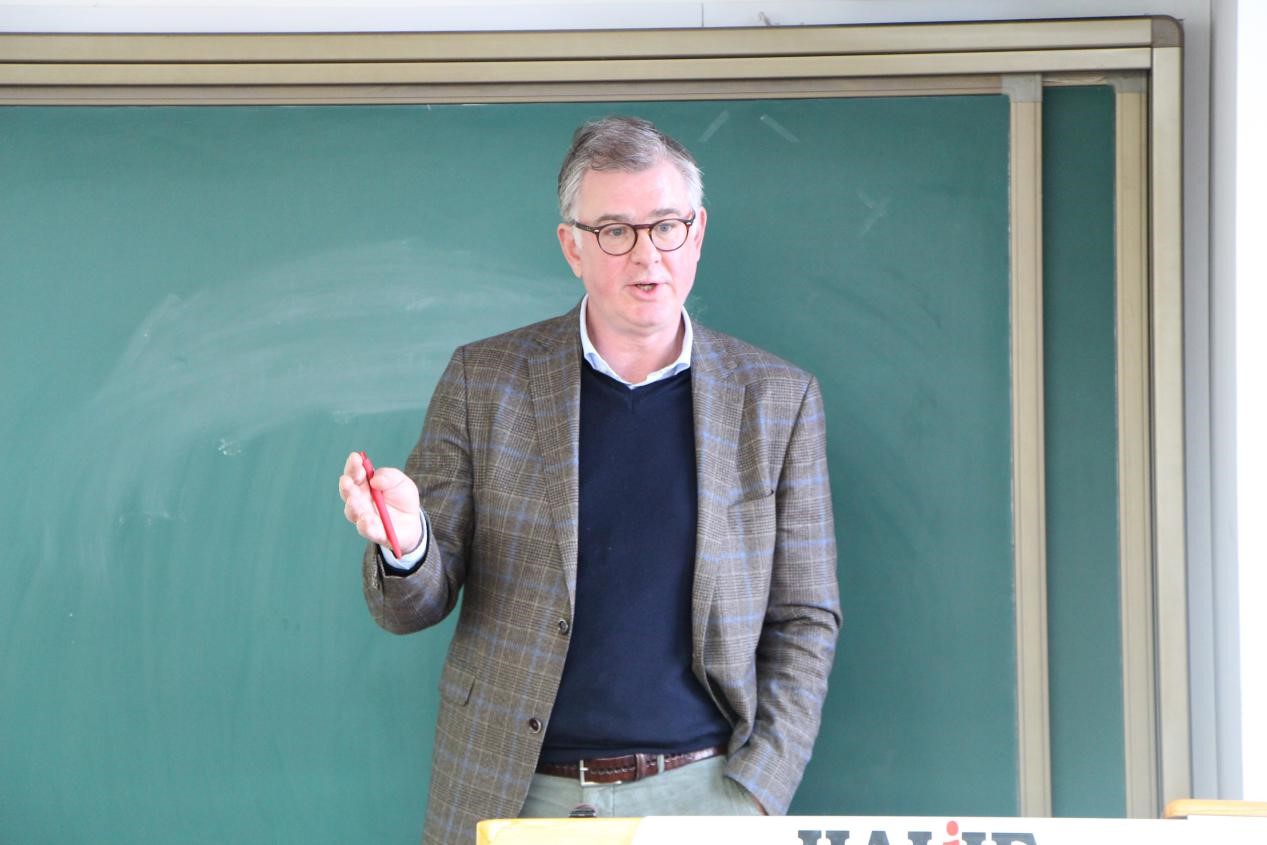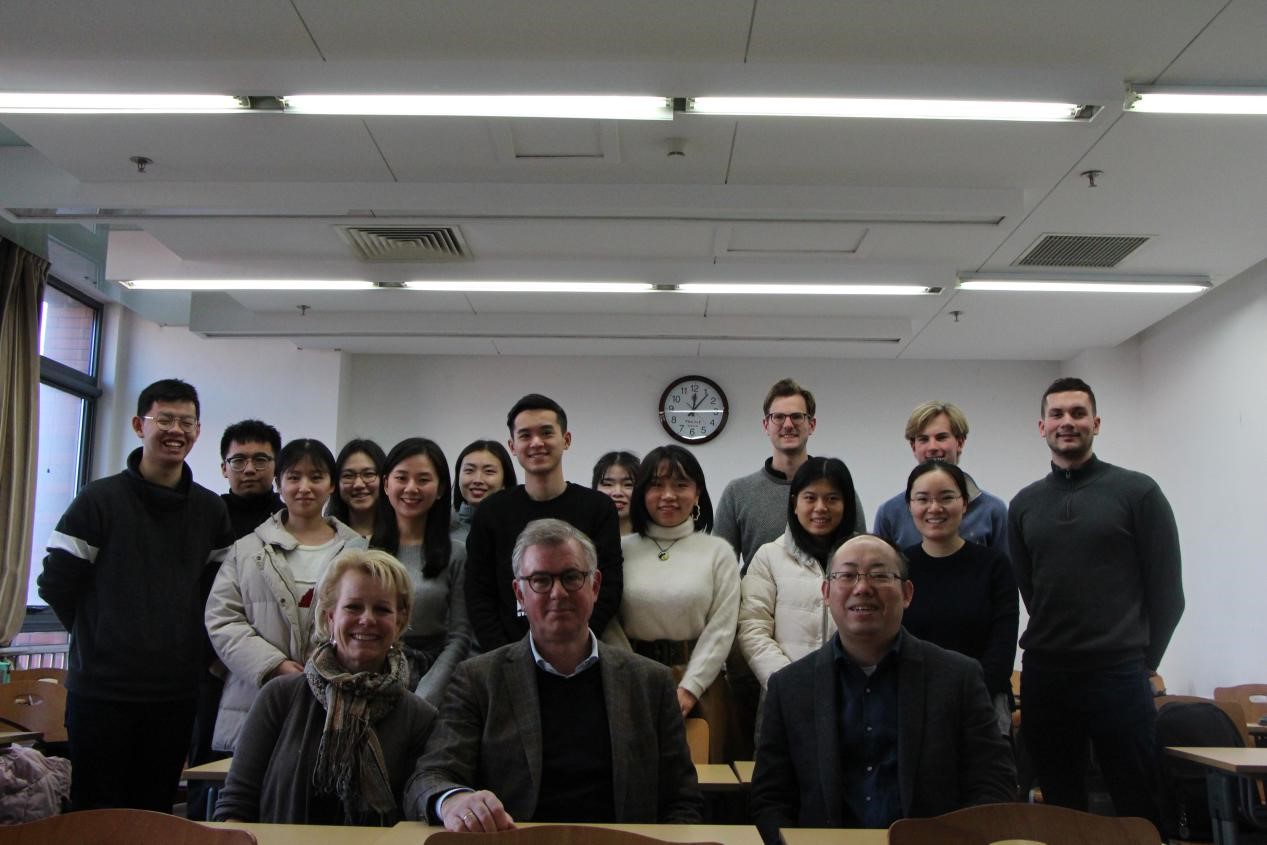On the morning of December 13, 2018, the 351th Global Human Rights Forum series was held at A209. Mr. Frode Elgesem, Chairman of the Norwegian Bar Association Human Rights Committee, gave a wonderful lecture entitled “Business and Human Rights” to students. Professor Zhang Wei, Co-director of the Institute, presided over the lecture.

At the beginning of the lecture, Mr. Frode Elgesem explained some of the basic knowledge of international human rights law. He mentioned that international human rights law is about how each State party treats individuals within its jurisdiction, and the State has the responsibility to protect the human rights of individuals from illegal infringement by third parties. He listed some international human rights documents and introduced some core internationally recognized human rights, such as the right to life and health.
Next, Mr. Frode Elgesem explained the relevant knowledge of “business and human rights”. First, companies are not responsible for violations of international human rights treaties, because only states are parties to the treaties, so only states will be bound by the treaties. But some companies with huge financial resources and influence can influence people's enjoyment of human rights. For example, some businesses may hire and profit from workers who are trafficked or forced to work as slaves, thereby violating workers’ rights to slavery or forced labor.
Subsequently, Mr. Frode Elgesem introduced the UN agenda on business and human rights. In 1999, the agenda was lifted by Kofi Annan in UN. In 2005, Professor John G Ruggie was appointed Special Rapporteur to the UN Secretary-General. Professor Ruggie mentioned in a report to the UN Human Rights Council in 2008 that the root cause of today's business and human rights dilemma lies in the governance gaps created by globalization. Without proper sanctions or compensation, these governance gaps will provide a relaxed environment for the misconduct of various companies. How to narrow and eventually eliminate the gaps is our fundamental challenge.
In addition, Mr. Frode Elgesem gave a detailed interpretation of the UN Guiding Principles on Business and Human Rights (2011) and the OECD Guidelines for Multinational businesses. Businesses have a responsibility to respect human rights, and companies should avoid the adverse effects caused or contributed by their own activities and eliminate such effects when problems occur. In addition, businesses should actively prevent and mitigate the adverse human rights impacts caused by their industrial chains. Companies also need to implement human rights due diligence and take steps to identify, prevent and eliminate adverse human rights impacts. The OECD Guidelines for Multinational businesses on Human Rights and Due Diligence Requirements are consistent with the UN Guiding Principles on Business and Human Rights. In addition, the OECD Guidelines for Multinational businesses have established a “National Contact Points” mechanism as their complaint mechanism. The main tasks of the National Contact Points include the promotion of guidelines, the handling of specific situations through complaint mechanisms and international cooperation with peers.
Finally, Mr. Frode Elgesem cited some examples of domestic legislation. He believes that the state should improve relevant legislation in the future, and businesses should also fulfill their responsibility to respect human rights. Finally, this lecture was successfully concluded.
